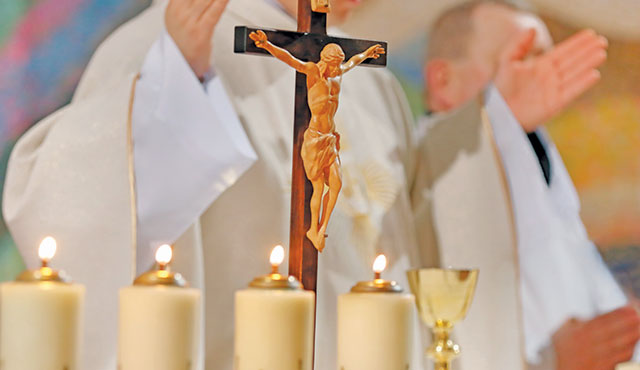Parents of adolescents and teens know firsthand the frustrations and uncertainty — and struggle — of raising happy, well-adjusted young adults.
Perhaps the most challenging part of parenting our older children is successfully fostering in them a strong Catholic faith. Once we have shepherded our kids through the sacrament of confirmation, what’s next?
“Parents must provide guidance for their children to develop a sustaining and ongoing relationship with Jesus and His Church,” states Katie Dawson, director of Parish Faith Formation and Evangelization for the Diocese of Orange.
Looking at national statistics that show declining members of active Catholics and an even smaller percentage of young adults who identify as faithful Catholics, Dawson says, it’s apparent that faith isn’t being handed down effectively to the next generation.
“We need to step back and look at what’s missing,” Dawson observes. “Our kids are emerging into adulthood without recognizing their need for God as their loving father and the saving grace of Jesus in their lives.
“The critical task for parents and parish faith formation leaders is to offer evidence for the reality that is not always visible — to provide recognition of Jesus’s presence in our lives.”
Merely attending Sunday Mass isn’t enough to cultivate our own faith, much less our children’s faith, Dawson notes. Instead, parents must recognize the importance of inviting children to the intentional heart of the story of Jesus and practicing a loving, ongoing relationship with Him.
Many of us compartmentalize the Church instead of letting it be the very foundation of our lives.
One effective way to inspire older children is to routinely share faith experiences, both difficult and inspiring, with them, says Catherine Ord, diocesan coordinator of Youth Ministry programs.
“They feel comfortable sharing when the subject is discussed often,” Ord notes.
Cecilia Phan, the diocese’s coordinator of Young Adult Ministry programs, agrees. “Teens assume that parents believe because that’s what they’ve been taught, and that they never have any trouble with their faith,” Phan says. “If they see their parents struggling with things, they recognize that parents, too, face challenges to their beliefs.
“Talking about our own experiences with God and the Church reminds family members that faith doesn’t have to be a perfect story,” she adds.
In addition to attending Mass regularly, Phan and Ord say, parents can invite their older children to accompany them to church when the sacrament of reconciliation is available, pray grace before meals, bless each other as they leave the house, and light candles to dedicate to a saint, our Blessed Mother, or Jesus.
Setting aside a quiet, comfortable part of the home as a prayer corner, complete with holy cards, spiritual reading materials, candles, rosaries, Bibles and other religious items promotes prayer as an important part of the family’s day.
Another way to help older kids practice their faith is to ensure that they have faith-filled Catholic mentors, such as religious sisters or teachers, confirmation sponsors, relatives or other adults with whom they can share.
“We don’t want to force our faith on our older children,” Phan notes. “Rather, we want to offer them a consistent invitation to practicing their faith. We want them to experience it together, to pray together, to be honest about our challenges and our positive faith experiences.”

